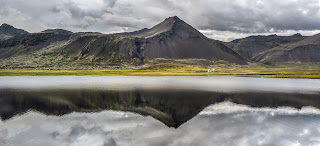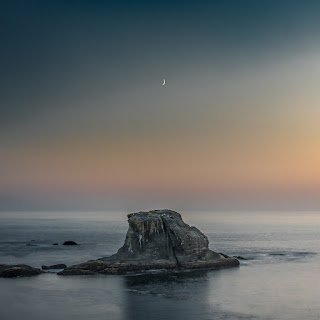
"We are what we are, and live in a given situation which has the characteristics – physical, psychological, social – that it has; what we think, feel, do is conditioned by it, including our capacity for conceiving possible alternatives, whether in the present or future or past. Our imagination and ability to calculate, our power of conceiving, let us say, what might have been, if the past had, in this or that particular, been otherwise, soon reaches its natural limits, limits created both by the weakness of our capacity for calculating alternatives – ‘might have beens’ – and even more by the fact that our thoughts, the terms in which they occur, the symbols themselves, are what they are, are themselves determined by the actual structure of our world. Our images and powers of conception are limited by the fact that our world possesses certain characteristics and not others: a world too different is (empirically) not conceivable at all; some minds are more imaginative than others, but all stop somewhere."
- Isaiah Berlin (1909 - 1997)
The Hedgehog and the Fox
Whenever I am on "vacation" - such as when my family and I recently visited Iceland - I instinctively recall Isaiah Berlin's well-known essay, "The Hedgehog and the Fox." The essay - a set of musings about Leo Tolstoy, history and human psychology - is woven around an aphorism attributed to Archilochus: "The fox knows many things, but the hedgehog knows one big thing." Berlin divides the world into two different kinds of thinkers. Some, like Aristotle and Shakespeare, are pluralists - or "foxes" - and cast a wide net to get to know as many things as possible; others, like Plato and Dostoyevsky, are monists - or "hedgehogs" - and strive to know one thing as deeply as they can.
So, what does this have to do with photography? Substitute "style (or manner) of composition" for "mode of thinking" to get an inkling of the admittedly imprecise analogy I will now leverage to illustrate the inevitable image-making process I seem to follow during "family vacations." Soon after I arrive at a destination (but excluding the first few days, during which - as a rule - I seem utterly incapable of capturing anything more meaningful than instantly forgettable "touristy" snapshots of something that simply catches my eye), I am drawn exclusively to the "big picture," literally scanning the horizon for sweeping views and landscapes. In other words, I typically approach an "unknown land" like a fox, running from place to place, aware of my larger surroundings, but constantly sniffing, looking, anticipating other places to visit; never resting too long in any one spot. This initial stage of my creative process consists not just of having a loose penchant to search for "Wagnerian landscapes," but is indicative of a deeply entrenched - myopic - focus on "big picture" scenery during which I seem strangely incapable of even seeing anything else. Of course, and for obvious reasons, this "creative insight" is hardly surprising. Iceland's mountains, volcanoes, and glaciers all beckon - demand - your attention even before your plane lands!
But something interesting inevitably happens after a few days go by in a new place. I transform into a "fox-like" hedgehog. While I still scurry around from place to place like a fox (remember, these are vacations I am writing about, so there are usually plenty of sights to see 😊, my eye and camera become deeply drawn to smaller, quieter, vistas that speak more of universal moods and feelings than capturing documentarian-like images of "objects" in a given place. Concomitantly, my compositions transition from images that superficially depict obviously Icelandic scenery (i.e., images that explicitly encode and/or communicate the states-of-being of "multitudinous things" as my eyes saw them "out there" in Iceland), to photographs that implicitly communicate my own state-of-mind (i.e., images that reveal how "big picture" Icelandic vistas transform my inner "I").
Sometimes, rarely, I manage to do both, as in the diptych above. The left big-picture image "obviously" depicts uniquely Icelandic rocky forms (which may be easily confirmed by spending a few moments with Google maps), while the one on the right is at least plausibly Icelandic, given its volcanic appearance, but could have been captured anywhere as I scurried to-and-fro in fox-like fashion. Taken as a whole, the diptych also perfectly conveys my Zen state, as I was lost in, and mesmerized by, Iceland's gentle moods and rhythms. Notably (and not unexpectedly), after looking over my archive of raw files when we got back home, images like these did not emerge until I was into the second week of our trip.




































